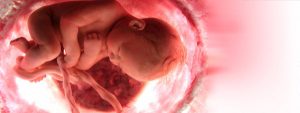degree relationship
Hereditary diseases
 Hereditary diseases are diseases caused by chromosomal and gene mutations. Some confuse hereditary diseases with congenital diseases. Indeed, congenital diseases, that is, diseases with which a child is born, may be hereditary, but they can also be caused by any damaging external influence on the embryo or fetus – an infection, ionizing radiation, a toxic substance. On the other hand, not all hereditary diseases are congenital, as some of them may occur later, even in an adult. Continue reading
Hereditary diseases are diseases caused by chromosomal and gene mutations. Some confuse hereditary diseases with congenital diseases. Indeed, congenital diseases, that is, diseases with which a child is born, may be hereditary, but they can also be caused by any damaging external influence on the embryo or fetus – an infection, ionizing radiation, a toxic substance. On the other hand, not all hereditary diseases are congenital, as some of them may occur later, even in an adult. Continue reading
Unusual Diseases: Aarskog Syndrome
 Aarskog syndrome, also known as Aaskorg – Scott syndrome, or faciesigiogenital dysplasia, is a very rare hereditary disease: it occurs in one person in a million. It manifests itself with pathological changes of the face, bones, genitals. Mainly men suffer from this disease, women are carriers of this pathology, and in them it can manifest only in a mild form. Continue reading
Aarskog syndrome, also known as Aaskorg – Scott syndrome, or faciesigiogenital dysplasia, is a very rare hereditary disease: it occurs in one person in a million. It manifests itself with pathological changes of the face, bones, genitals. Mainly men suffer from this disease, women are carriers of this pathology, and in them it can manifest only in a mild form. Continue reading
What is Klinefelter syndrome?
 Klinefelter syndrome is a genetic pathology of men, based on endocrine disorders caused by additional female chromosomes in the set of sex chromosomes. This is a fairly common genetic disease. According to statistics, 0.2% of men are susceptible to it, and among endocrine disorders, Klinefelter syndrome ranks third (diabetes mellitus in the first place, and thyrotoxicosis in the second). But according to the same statistics, only 50% of cases are diagnosed. Continue reading
Klinefelter syndrome is a genetic pathology of men, based on endocrine disorders caused by additional female chromosomes in the set of sex chromosomes. This is a fairly common genetic disease. According to statistics, 0.2% of men are susceptible to it, and among endocrine disorders, Klinefelter syndrome ranks third (diabetes mellitus in the first place, and thyrotoxicosis in the second). But according to the same statistics, only 50% of cases are diagnosed. Continue reading



